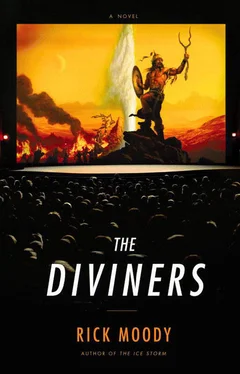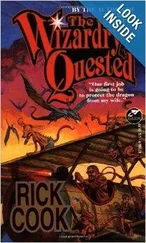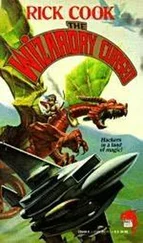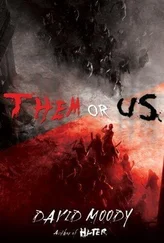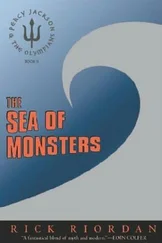The others talk freely, despite the slumbering man of God, but before the newly pregnant filmmaker can capture the tenor of their conversation, the television program is back, and the flickering of the monitor plays across their faces.
What they are seeing is Felicia Adams in the morning. The morning after Thanksgiving, in the kitchen, at dawn, trying to straighten up things in the house before the others wake. Suddenly she hears the front door open. There she finds her eldest son, holding some scraps of a towel around his middle so as to conceal his Edenic nakedness from her. The close-up on Felicia’s face captures the slow play of meanings in her. He must have gotten into some kind of devilment with his friends. He must have gotten into some trouble with a girl. Or he must be. . The surprise is in how long it takes, considering that the notion can’t have ever been far from her thinking. It’s always darkest right under the lamp. Apparently she has tried to believe anything but the notion that her son has the lupine gene, as any mother would.
“Mommy,” Bennett says, “something awful happened to me last night. I don’t even know. . I don’t even know how to say it. I’m so scared, and I don’t know what to do.”
Now there’s one of those Madonna-and-child moments in the front hall of the apartment, where lately Vern reclined while romancing the carcass of a turkey. The two of them slide to the floor, the boy weeping as though he’s still just a kid trapped in the expanding body of an adolescent. There’s blood all over his hands and arms, a volume of blood that no person should have to see, especially no one as young as Bennett. His mother lets him cry for a while as he tries to describe what cannot be described. “There was something happening to my body. I was over at Merry’s house, and suddenly something happened to my body, and I was. . I was covered in fur, and then I can remember that I ran out of the party on. . on all fours. ” And then a fresh helping of tears.
When she has said nothing for so long that it is maternal callousness, Bennett Adams finally looks up at his mother, and suspicion begins to pass across his own features. Her gaze is level, determined, unsentimental.
“We’ve got to get all this blood off you before your brother wakes,” she says. “Come with me into the kitchen.”
And the two of them, confederates, tread softly into the kitchen, where she turns on the tap in the big sink basin and immerses his hands in the water. With a generous bar of soap, she soaps his hands in her own, and the water cascades across his bloodied knuckles, and this water foreshadows developments in next week’s episode, the hydrophobia episode, about which there has already been voluminous conjecture on the chat boards.
“Mom?” he says, and the nakedness of the interrogative tells much about the suffering of werewolves, from their origin in Middle Europe to their postmodern anguish in the evolving genetic picture of the new millennium.
“Yes,” Felicia says.
“You, too?” he says.
“Yes,” she says. She knows. She has felt these things. She, too, has suffered. “But don’t say anything more about it now. Don’t say anything more.” And she gives his hands another round of soap and water and then dries them with a dish towel. Now Felicia leads the boy into the back bedroom, where his bed occupies most of the available floor, and she lays him down on the mattress and pulls the covers over him.
“It seems like it’s a curse,” she says to him. “It seems like you are doomed every month when the moon is full. But there comes a time when it seems like a blessing, like you’re better somehow. You know the taste of warm blood still pulsing, and that’s something that most people will never know. You’re special now, because you have ripped the limb from a living animal and watched it bleed to death, and because you no longer have to pay attention to property lines or the laws of the politicians or the morals of the churches, or any of that. You are the laws of nature. And yet after a while, even that becomes a curse, and then you learn the one bit of grace in all of this, and that’s the law of the pack. The pack is the one place you’re understood now. The pack is the place where your mistakes and your failures are your assets. The pack is where you can get out of any jam that you can get into. If you can’t find a job, go to the men and women of the pack. And if you don’t have a friend anywhere, go to the men and women of the pack. If you can’t believe in anything good on the face of this earth, go to the men and the women of the pack. They’re everywhere around you, though you’ve never seen them. Your mailman might be a member of the pack, and your teacher might be one, and your doctor might be, and even your own mother might be, though you’ve never known until now.” She smiles at him. “Okay, better get some sleep, because you’re bound to get into trouble again tonight.”
He’s already asleep. Or nearly so.
Felicia rises up from his bedside and she closes the door to his bedroom behind her, and on the far side, she slumps against the door, stifling sobs and wondering how she can take this, too, this on top of everything else. How much stronger can a woman be?
Closing credits. And theme music. The announcer tells all to stay tuned.
At which point the assembled constituencies, in all the millions of living rooms, the living rooms of some huge portion of the industrial West, exhale and begin to abandon the television set. There’s nothing worth watching after, and in one living room in Newton, Mass., the newly pregnant filmmaker of a powerful new documentary about family life looks down at the book that her older brother has been marking up throughout the episode of The Werewolves of Fairfield County, and it looks like this:

There are days when the only question in the waiting room of the hospital is about the quality of her consciousness. And yet the victim has no consciousness of her habits and opinions, only the consciousness of the brick. The brick has no consciousness itself, or so it is often believed. And yet here is the brick considering its manifestations. Or perhaps the consciousness of the brick and the consciousness of the victim have become twinned in their perceptions. For the victim, the consciousness of impact is lost. Not so for the brick. The consciousness of the moment of the impact, when the victim is talking on her cell phone, walking briskly to or from the library, depending on the account, is alive for the brick, when it becomes an instrument of death, collides with her, crushes a portion of the side of her skull; when she is facedown on the sidewalk, and the cell phone has gone skittering, and the blood flows liberally from her skull; when the brick is cast aside, to return to its formerly inert state. Lost to history, lost to the victim, except that she hears the brick calling to her.
Of course, the victim does not know that she has collided with a brick. She knows only that she is in a serene blackness of indefinite duration and proportion. In this space there are murmurings, and these murmurings are disconnected and without meaning, and they appear amid portions of blackness that have nothing at all associated with them, no variation, no density, no volume. If there are words overheard, murmurings, they are heard at such a distance that they sound more like a massing of insects.
The brick comes from an oven somewhere, a kiln, from some locale plentiful in the labor necessary to produce a brick, an area that offers costs of labor far cheaper than what is available here in the metropolitan region. The brick is from Romania, or the brick is from the Yucatán, or the brick is from a factory in West Virginia, where the brick-producing factories are soon to shutter once and for all. Men and women there have manufactured bricks for forty-five years, but they soon will be looking for work in the service sector. This brick is made of clay, and the brick was fired at high temperatures, and there was a medium that bound the clay and gave it pigment in a giant convectionary bowl of some kind, where the mixture was assembled, and thereafter the brick was shaped and fired. The brick is nothing but earth. It has no history except in recollection, as an agent of death. In this instant of the victim’s life after the collision with the brick, the first instant that the victim recognizes as such, what she is conscious of is the brick.
Читать дальше
